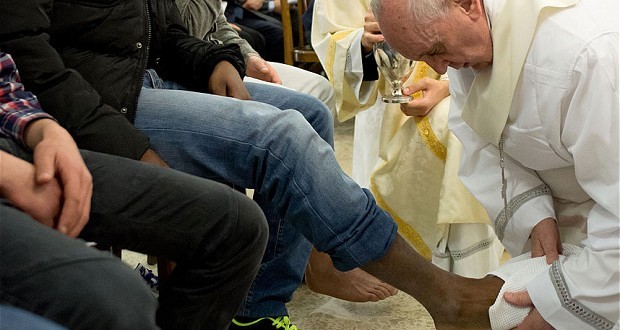Sin, Even To The Faithless, Goes Against Conscience

Pope Francis has composed a letter to the founder of “La Repubblica”, Eugenio Scalfari, responding to some concerns that the ex-director of the newspaper had dealt with to the Pope in various short articles on faith and laicism. In the four-page letter, released today by the Italian daily, Francis addresses Scalfari and non-believers with a summary of effective ways he personally discovered faith, reiterating that “without the Church I would not have actually been able to experience Jesus” and adding that “it is due to this personal experience of faith lived within the Church that I am at ease in listening to your concerns and in seeking, together with you, the courses along which we may perhaps begin to walk part of the journey together”.
With regards to the issues of how the Church responds to those who do not share in faith in Jesus and whether the Christian God forgives those who do not believe and do not seek faith, the Pope answers that “considering– and this is the essential issue– that the mercy of God knows no limits if we turn to him with a genuine and penitent heart, the genuine concern for those who do not believe in God depends on paying attention to one’s own conscience”. He clarifies, “Sin, likewise in those who are without faith, exists when it breaks our conscience. Hearing and complying with one’s conscience implies, undoubtedly, to choose in relation to exactly what is viewed as good and bad. And on this decision rests the goodness or the evil of our actions”.
On the point of whether it is wrong or a sin to believe that no “outright truth” exists, the Pope writes, “the fact, according to Christian faith, is God’s love for us in Jesus Christ. The reality is a relationship! Each one of us receives that truth and expresses it in his or her own way, from the history, culture, and circumstances in which he or she lives”.
In response to the last question, “With the disappearance of man on earth, would there also vanish the idea of being able to imagine God?”, Pope Francis responds, “The greatness of man rests in his capacity to think about God. And this also means being able to experience a knowing and responsible relationship with God. But the relationship is between 2 realities. … God does not depend on our thought. Besides, when man’s life on earth ends– for the Christian faith, in any case, this world as we know it is destined to fall– man will not cease to exist, and, in a manner that we do not know, nor will the universe that was created with him”.
Pope Francis concludes by emphasising that “the Church, in spite of all the sluggishness, the unfaithfulness, the errors and the sins that may have been committed by those who belong to her, has no other meaning or aim other than living and bearing witness to Jesus”.






